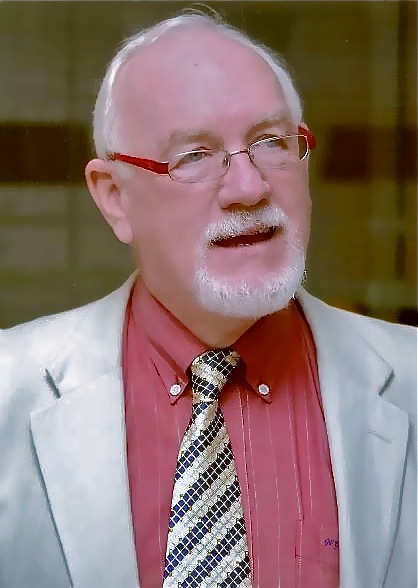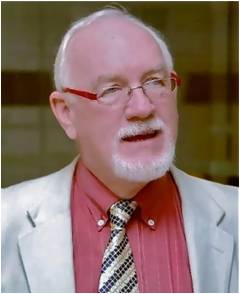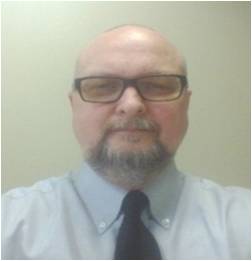
|
|
Bio-Rad Laboratories sponsors continuing medical educational events for healthcare professionals across the country. You can register for upcoming sessions here, or watch archived webinar recordings at any time, from anywhere. These Bio-Rad sponsored events are presented by esteemed professionals in the world of healthcare and research, and managed by Whitehat Communications to ensure a professional environment. All programs are free, and offer PACE® Continuing Education Credits for up to six months after the live event. Be sure to check back often for new event postings. |
|
Molecular Diagnostic Testing: You can do this – But How? Live Event: Thursday, May 10, 2018 PACE® Credit available until November 10, 2018 | Florida Lab Credit available |
|
|
The advent of Molecular Diagnostics has resulted in tests of
exceptional sensitivity, with tests capable of detecting small
numbers of organisms, rapidly, without extensive manual sample
processing. This has allowed improved diagnostics for diseases
in which older methods were problematic, and enables practical
diagnostics in situations where no effective testing was
formerly available. However, the sensitivity and accessibility of molecular diagnostic testing can also be an Achilles heel. Even minute amounts of contamination with target or similar material, can generate false positive results. Even simple molecular tests are complex methods using multiple reagents and processes to purify, amplify, and detect target nucleic acid sequences; any failure or deterioration of instruments and reagents can lead to false-negative results. Molecular methods are expensive relative to many conventional tests, so test verification, proficiency testing, trouble-shooting, and quality control is costly. In addition to testing risks, molecular labs face an often complex regulatory environment, where best practice and regulation do not always necessarily align. This poses challenges when introducing new molecular tests or managing those currently in practice. This complexity at the analytical, operational, and economic levels creates significant risks for labs conducting molecular testing that are often best mitigated through effective quality assurance programs. This webinar will cover the elements of molecular testing and best practices required to reliably meet regulatory standards and provide value for patients. It will describe the basic work-flow of molecular diagnostic testing, identify the properties of analytes that make them candidates for molecular testing, and discuss some major amplification and detection methods. It will also identify various types of molecular testing platforms and review best practices in molecular testing. This session will: • Describe the basic work-flow of molecular diagnostic testing and major amplification and detection methods • Identify the properties of analytes that make them candidates for molecular testing • Identify various types of molecular testing platforms • Review best practices in molecular testing and quality control practices for molecular diagnostics • Discuss quality improvement goals for molecular diagnostics |
Presenter: Sheldon Campbell M.D., Ph.D. Professor of Laboratory Medicine Yale School of Medicine  Dr. Campbell is a Professor of Laboratory Medicine at Yale School of Medicine and Director of Clinical Laboratories for the VA Connecticut Healthcare System. He obtained a bachelor’s degree in Biology from Rice University in Houston, Texas. He completed his M.D. and Ph.D. degrees in the Medical Scientist Training Program at Baylor College of Medicine, also in Houston. He was a resident and post-doctoral fellow in Laboratory Medicine at the Yale School of Medicine. He is board certified in Clinical Pathology and Medical Microbiology by the American Board of Pathology. He is the director of the Yale Medical School Medical microbiology and Infectious Diseases course and the Yale Winchester Medical Microbiology Fellowship Program. |
|
Designing Risk Managed QC Strategies Live Event: Wednesday, April 18, 2018 PACE® Credit available until October 18, 2018 | Florida Lab Credit available |
|
|
If you test enough samples, in clinical diagnostics some of the
results are going to be incorrect. Those incorrect results carry
with them the potential for harming patients. The goal of risk
management in the clinical laboratory is to manage the risk of
patient harm stemming from an incorrect result, keeping patients
exposure to harm at an acceptable level. Designing a risk managed QC strategy allows labs to assess and mitigate the risk of producing patient harm. The webinar will describe the risk managed approach to QC and provide examples of actual QC design as well as the impact to labs who utilize risk managed QC strategies. The webinar will also describe how risk-managed QC strategies allow labs to overcome the limitations of historical QC design by considering test method reliability and the clinical utility of the test. This session will: • Analyze how test method performance, reliability, and clinical utility affect our tolerance for erroneous results • Describe the method of determining an acceptable probability of patient harm • Discuss the method of computing a predicted probability of patient harm for a test method • Describe how to compute a risk management index, comparing predicted probability of patient harm with acceptable probability of patient harm |
Presenter: John C. Yundt-Pacheco, MSCS Scientific Fellow Quality Systems Division, Bio-Rad Laboratories  John Yundt-Pacheco is a Senior Principal Scientist at the Quality Systems Division of Bio-Rad Laboratories in Hercules, CA. He leads the Informatics Discovery Group in Plano, TX, doing research in quality control and patient risk issues. He has been with Bio-Rad for 30 years and had the opportunity to work with laboratories around the world developing real time, inter-laboratory quality control systems, proficiency testing systems, risk management and other quality management systems. |
|
Linking QC Performance to Patient Risk Live Event: Tuesday, April 11, 2017 PACE® Credit available until October 11, 2017 | Florida Lab Credit available |
|
|
Mitigating risk of patient harm is one of the primary purposes
of laboratory QC. However, laboratories lack a method for
quantifying the likelihood of patient harm for their test
methods. Neither ISO nor CLSI offer an objective approach to
estimating probability of patient harm. What this means for most
labs is that they may be exposing patients to greater levels of
risk than necessary. This elevated risk exposure could pose an
eventual threat to laboratories and patients alike. This webinar offers a methodology for objectively quantifying patient risk, allowing laboratories to design QC plans which should lead to even greater reductions in patient harm. By embracing this relationship between QC performance and patient risk we can take one more step toward improved patient care. The webinar will also discuss the importance of a "patient risk" approach to QC planning, identify the ways in which labs can reduce patient risk through QC procedure, and describe the elements of a QC system that impact patient risk. This session will: • Discuss the importance of a "patient risk" approach to QC planning • Describe the elements of a QC system that impact patient risk • Identify the ways in which labs can reduce patient risk with QC • Analyze the relationship between QC performance and patient risk For additional educational resources on managing QC offered by Bio-Rad, click here. |
Presenter: Curtis A. Parvin, Ph.D. Manager of Advanced Statistical Research Quality Systems Division, Bio-Rad Laboratories  Curtis Parvin is Senior Principal Scientist and Manager of Advanced Statistical Research for Bio-Rad Laboratories' Quality Systems Division where he leads a team that develops new theories, methods, and tools to support laboratories in the 21st century. Dr. Parvin is a former faculty member of Washington University School of Medicine, where he served as the Director of Informatics and Statistics in the Division of Laboratory and Genomic Medicine. One of his primary research interests has focused on statistical methods for modeling and characterizing the performance of laboratory quality control strategies. |
|
Integrating the Cost of Quality into Laboratory
Operations Live Event: Wednesday, December 2, 2015 PACE® Credit available until June 2, 2016 | Florida Lab Credit available |
|
|
Bio-Rad's September 2015 webinar,
"The Impact of Poor Quality on the Lab Budget”, identified the
various types of quality costs, distinguished between internal
and external failure costs, and compared costs of prevention
with costs of failure. Feedback from participants showed that
laboratories now want to know more about quality costs and how
to apply this knowledge to daily operations by having the
following questions answered: What are some examples of cost of quality calculations? To what type of projects can we apply quality costs? How do we use cost of quality information in a meaningful way with administration? This follow-up webinar delves more deeply into the financial aspects of quality costs on laboratory workflow, special projects, and cost management. Using a Lean project case study, participants will learn how to identify and calculate the different types of quality costs – highlighting when there is a cost reduction opportunity and when there is not. This session will: • Describe where and how the cost of quality concepts apply in improvement projects • Identify types of quality costs in the laboratory's budget and use this information to justify needs to administration • Apply quality cost concepts to your laboratory’s operations For additional educational resources offered by Bio-Rad relating to IQCP, visit http://qcnet.com/CostOfQuality |
Presenters: Lucia M. Berte, MA, MT(ASCP)SBB, DLM, CQA(ASQ)CMQ/OE, President Laboratories Made Better! PC  Anne T. Daley, MS, MT(ASCP)DLM, CMQOE(ASQ) CSSBB, President Daley Consulting, LLC |
|
The Impact of Poor Quality on the Lab Budget Live Event: Wednesday, September 16, 2015 PACE® Credit available until March 26, 2016 | Florida Lab Credit available |
|
|
Lab budgets are being squeezed by payors cutting reimbursement
and administrative need for leaner operations. In this health
care economic environment, labs resources are stretched to the
breaking point with managers being asked to make cuts that they
inherently know could affect patient test quality.
This webinar will provide lab superviors, managers, and
directors with ways to assess the impact of cuts on Quality and
provide an objective means for laboratorians to talk in ways
that administrators understand. This session will: • Identify types of quality costs that impact a laboratory’s budget • Distinguish between internal & external failure costs • Explain the relationship between cutting prevention and appraisal budgets and an increase in failure costs Who should attend: • Laboratory Directors • Laboratory Managers and Supervisors • Point-of-Care Coordinators • Laboratory Quality Managers For additional educational resources offered by Bio-Rad relating to IQCP, visit http://qcnet.com/CostOfQuality |
Presenters: Lucia M. Berte, MA, MT(ASCP)SBB, DLM, CQA(ASQ)CMQ/OE, President Laboratories Made Better! PC  Anne T. Daley, MS, MT(ASCP)DLM, CMQOE(ASQ) CSSBB, President Daley Consulting, LLC |
|
IQCP: Ask the Experts Live Event: Wednesday, July 22, 2015 PACE® Credit available until January 21, 2016 | Florida Lab Credit available |
|
|
On January 1, 2016, CLIA will require non-waived tests to
perform QC at the CLIA default minimum - or have in place an
Individualized Quality Control Plan (IQCP) that supports
performing QC at a lower frequency. Many laboratories are
struggling to understand how to comply with the new guidelines.
As part of Bio-Rad's IQCP webinar series, we are pleased to host
an extended Q&A session with a panel of IQCP experts from CAP,
The Joint Commission, and two hospital laboratories. Attendees
may pose questions both in advance when they register or during
the webinar. This session will: • Discuss the process to determine if an IQCP is required for a particular test • Identify the components of an IQCP • Describe how an IQCP is performed • List the resources available for writing an IQCP Who should attend: • Laboratory Directors • Laboratory Managers and Supervisors • Point-of-Care Coordinators • Laboratory Quality Managers For additional educational resources offered by Bio-Rad relating to IQCP, visit http://qcnet.com/iqcp/index.html |
Panel of Experts: |
|
IQCP: Performing the Risk Assessment Live Event: Tuesday, June 2, 2015 1:00 – 2:00 PM ET PACE® Credit available until December 1, 2015 | Florida Lab Credit available |
|
|
In January 2016, labs looking to reduce QC frequency below the
CLIA minimum will be required to have their individualized
quality control plan (IQCP) in place. At the same time, reduced
QC frequency based on EQC (equivalent quality control) will no
longer be permitted. Clinical laboratories all around the
country are gearing up their activity to ensure they have their
programs in place before year-end. In this third FREE webinar, join Bio-Rad to explore one of the three components of the IQCP, the risk assessment. Learn what risk identification means, how to assess the acceptability or unacceptability of those risks, and how to disposition unacceptable risks. Presented in a straight-forward and practical manner, the two experts will leave you with a greater understanding of how to complete this important step. This session will: • List the mandatory components of an IQCP • Cite tools and resources to identify risks • Evaluate hazards to determine their risk level • Identify mitigating activities to reduce risk Who should attend: • Laboratory Directors • Laboratory Managers and Supervisors • Point-of-Care Coordinators • Laboratory Quality Managers For additional educational resources offered by Bio-Rad relating to IQCP, visit http://qcnet.com/iqcp/index.html |
Presenter:
Greg Cooper, CLS, CQA, MHA W. Gregory Cooper LLC  Greg Cooper is a leading expert in quality control and risk management. He is a licensed clinical laboratory scientist with a wealth of experience as both a laboratory professional and as an industry professional. Presenter: Valerie Ng, MD, PhD  Valerie Ng, MD, PhD, is chair of pathology and laboratory medicine, director of the clinical laboratory and transfusion service, and immediate past president of the medical staff at Alameda County Medical Center/Highland General Hospital in Oakland. |
|
Risk-Based QC for Clinical Laboratories Live Event: Wednesday, May 27, 2015 10:00 – 11:00 AM EST Certificate of Attendance available |
|
|
Recent advancements have advocated a risk-based approach to the
question of QC Frequency. Many have struggled with the question
of how often should liquid QC be run; guidance has traditionally
taken a one-size-fits-all approach resulting in labs typically
selecting one QC frequency for all their tests. The approach of
performing quality control tests on a group of samples has been
forced to evolve as laboratories incorporate real-time result
reporting and virtually non-stop testing. A new QC paradigm has
emerged, QC as a means to reduce the risk of reporting incorrect
results. Bio-Rad is pleased to invite you to an informative and
engaging talk that will review concepts and examples based on
internationally recognised standards and guidance documents.
This session will: • Describe the concept of risk management in laboratory medicine • Summarise the basic process for developing a risk-based QC plan • List resources that can be utilised as an aid to the process • State the five components evaluated in a risk assessment For additional educational resources offered by Bio-Rad relating to IQCP, visit http://www.qcnet.com/tabid/7546/Default.aspx |
Presenter:
Greg Cooper, CLS, CQA, MHA W. Gregory Cooper LLC  Greg Cooper is a leading expert in quality control and risk management. He is a licensed clinical laboratory scientist with a wealth of experience as both a laboratory professional and as an industry professional. Before retiring, Mr Cooper served as the Manager of Scientific Affairs for Bio-Rad's Quality System Division and, through his own company, advises medical laboratories in the area of quality systems. He is a certified quality assessor (American Society of Quality) and serves as an ISO 15189 assessor for the American Association for Laboratory Accreditation |
|
IQCP - A New Option to
Determine QC Frequency Live Event: Tuesday, December 10, 2013 1:00 – 2:00 PM ET PACE® Credit available until June 9, 2014 | Florida Lab Credit available for live session only |
|
|
CLIA regulations mandate the minimum daily QC for many tests
with a reduced QC frequency option called Equivalent QC (EQC).
EQC has been widely adopted by hospital labs and
physician-office labs using point of care devices. Starting in
2014, QC frequency may be determined by a new risk-based
approach. The Centers for Medicare & Medicaid Services (CMS) is
calling this new approach Individualized Quality Control Plan
(IQCP). Labs may start using IQCP along with EQC in 2014 but
must transition over from EQC by the end of the educational
period. This webinar will explain the purpose of the new IQCP program, when it can and cannot be used, timelines, and what to expect from surveyors during the transition period. This session will give guidance on how to begin preparation for developing your own IQCP. Suggestions and tips will be provided that will enable you to break down the process into manageable steps. You’ll hear from two risk-based QC experts: One, a CMS expert who has been involved in the development of IQCP and is part of the team training CLIA surveyors and the other, a QC expert who has been involved with the development of the related CLSI’s guidance document. This session will: • Review CMS timeline and requirements for IQCP • Outline what labs can expect from CLIA surveyors during the transition period • Identify what types of tests are eligible for IQCP consideration • Discuss ideas and strategies for preparing to create an IQCP For additional educational resources offered by Bio-Rad relating to IQCP, visit www.QCNet.com/IQCP |
Presenters:
Keith Scott, MLS (ASCP)CM Laboratory Surveyor, CMS  Keith Scott is a CMS laboratory surveyor and consultant in the Survey, Certification and Enforcement branch at the Seattle Regional CMS Office. He has over 20 years of experience in the clinical laboratory and 9 years of government regulatory experience. Greg Cooper, CLS, CQA, MHA W. Gregory Cooper LLC  Greg Cooper is a leading expert in quality control and risk management. He is a licensed clinical laboratory scientist with a wealth of experience as both a laboratory professional and as an industry professional. Before retiring, Mr Cooper served as the Manager of Scientific Affairs for Bio-Rad's Quality System Division and, through his own company, advises medical laboratories in the area of quality systems. He is a certified quality assessor (American Society of Quality) and serves as an ISO 15189 assessor for the American Association for Laboratory Accreditation |
| Additional Educational Resources Sponsored by Bio-Rad |
|
| Bio-Rad's commitment to
education extends to our sponsorship of many of the 2015 point of care
group webinars, which are produced by Whitehat Communications and free
to the point of care and laboratory community. You can register for the
2015 sessions and view the recorded sessions by visiting: 2015 Point of Care group webinars |
|
| © 2017 | Whitehat Communications, a division of Martek Inc. | |